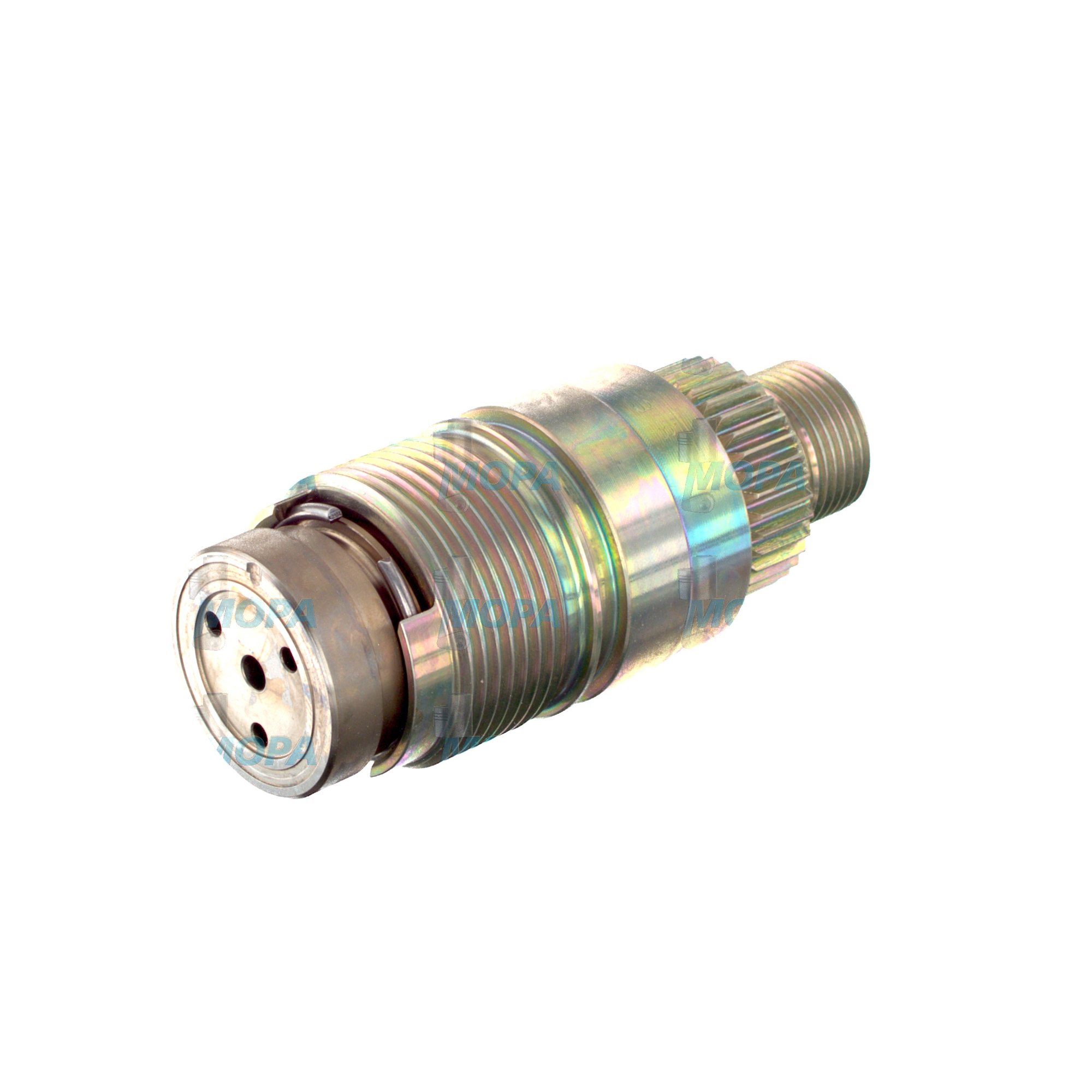DELIVERY VALVE and Valves for diesel and gas engines
Valves are precision components that control the flow of gases and liquids throughout an engine. In cylinder heads they meter intake air and exhaust gases; in fuel systems they shape injection events; in lubrication, cooling, and pneumatics they protect circuits and maintain pressure. This broad family of parts—ranging from intake and exhaust valves to safety, check, and fuel delivery valves—determines how efficiently, cleanly, and reliably an engine runs. On marine engines and stationary generator sets, Valves work under extreme thermal, mechanical, and chemical loads, making their specification and condition critical for uptime and lifecycle economics.
Technical function of Valves and the DELIVERY VALVE in a diesel engine
In the combustion chamber, intake and exhaust valves open and close in precise synchrony with the camshaft. Their sealing integrity sets the basis for compression, while lift, timing, and seat geometry influence cylinder filling, scavenging, and residuals—direct levers for torque, fuel consumption, and emissions. Materials must withstand hot combustion gases and high contact stresses; stems slide at high speed through guides with minimal wear; seats and faces require hardness and surface finish that remain stable over thousands of hours.
In the high-pressure fuel pump of a diesel engine, the DELIVERY VALVE carries an equally vital task. During the pumping stroke it allows fuel to flow toward the injector; at the end of the stroke it rapidly closes and often incorporates a controlled retraction volume that instantaneously drops line pressure. This sharp pressure decay prevents injector dribble, stabilizes injection cutoff, and reduces hydraulic oscillations in the pipe. The DELIVERY VALVE also holds residual pressure in the line to shorten the injector’s response at the next cycle—key for consistent timing, clean combustion, and low smoke. In a marine engine, a well-matched DELIVERY VALVE keeps injection dynamics stable despite long fuel lines and varying loads, while DELIVERY VALVE OEM parts ensure the seat, spring rate, and flow path meet the intended pump map.
Key characteristics and advantages of Valves
· Precise flow control and tight sealing under high temperature and pressure.
· Materials engineered for heat, corrosion, and deposit resistance.
· Micron-level geometries for consistent timing and low leakage.
· Robust wear surfaces on seats, stems, and guides for long service intervals.
· Stable spring forces and lift profiles for repeatable actuation.
· DELIVERY VALVE designs that prevent dribble and maintain residual pressure.
· Compatibility with diesel engine and marine engine operating profiles.
· Availability as OEM parts with documented specifications and traceability.
DELIVERY VALVE OEM parts: precision, materials, and micrometric tolerances
The performance of a DELIVERY VALVE depends on surface finish, concentricity, and the hardness profile of the plunger-seat pair. High-grade tool steels, case hardening, and controlled lapping produce leakage rates within specification, while spring metallurgy preserves closing dynamics over millions of cycles. For cylinder head valves, heat-resistant alloys with hard-faced seats and nitrided stems limit wear and micro-welding, and optimized seat angles (often multi-angle) reduce thermal loading while sustaining flow. Such details translate into lower fuel consumption, balanced cylinders, and reduced soot formation—outcomes that matter every day aboard a vessel or at a power plant.
Importance of Valves for engine reliability and service life
When Valves deteriorate, the engine pays the price. Loss of compression from pitted seats or bent stems causes misfires, higher specific fuel oil consumption, and rising exhaust temperatures. Sticking valves or valve float can escalate to piston contact or turbocharger damage. Leaky exhaust valves accelerate hot-spot formation and crack growth on the seat ring. In fuel systems, a worn DELIVERY VALVE leads to poor injection cutoff, injector dribble, nozzle coking, increased smoke, and rough running at low load. Pressure pulsations can fatigue high-pressure pipes and reduce pump efficiency. Over time, these issues shorten service intervals, increase unplanned downtime, and raise total cost of ownership—risks that shipowners and power operators aim to avoid.
Advantages of OEM spare parts suitable for Valves and DELIVERY VALVE
Choosing OEM spare parts suitable for Valves preserves the engineering intent of the engine maker: exact seat angles, stem diameters, hardness gradients, and spring characteristics are reproduced consistently. For a DELIVERY VALVE, this means the correct retraction volume, closing speed, and leakage specification—critical parameters for injection stability.
With OEM parts, purchasers gain predictable performance across cylinders, straightforward installation with proper fit, and documentation that supports class compliance and audits. Measured over an overhaul interval, the benefits are tangible: stable cylinder pressures, cleaner injector tips, fewer corrective maintenance events, and optimized fuel burn. Budget-wise, the lowest total cost comes from parts that last to planned intervals and protect adjacent components such as injectors, pump elements, turbochargers, and exhaust valves. In short, OEM spare parts suitable for Valves sustain reliability, performance, and service life—while helping technical teams plan maintenance with confidence.
MOPA as a partner for OEM spare parts Valves and DELIVERY VALVE
MOPA is an experienced and reliable partner for OEM spare parts Valves, including DELIVERY VALVE components for diesel and gas engines. We focus on speed, quality, and security in the trade of OEM parts: fast sourcing and dispatch from curated stock, strict quality controls with traceable documentation, and logistics tailored to dry-dock schedules and remote ports. Our team supports purchasers and superintendents with technical cross-references, part identification, and kitting for overhauls, reducing procurement complexity and minimizing downtime. Whether you operate a deep-sea marine engine or a land-based generator, MOPA delivers the right OEM parts on time and with the assurance of consistent specification.
Conclusion: Valves and DELIVERY VALVE at the core of engine performance
Valves—especially the DELIVERY VALVE in a diesel engine fuel pump—govern combustion quality, efficiency, and reliability. Keeping these components within specification safeguards power output and protects your equipment investment. OEM spare parts suitable for Valves ensure consistent geometry, proven materials, and dependable operation across service intervals, helping fleets and plants run efficiently and safely.



